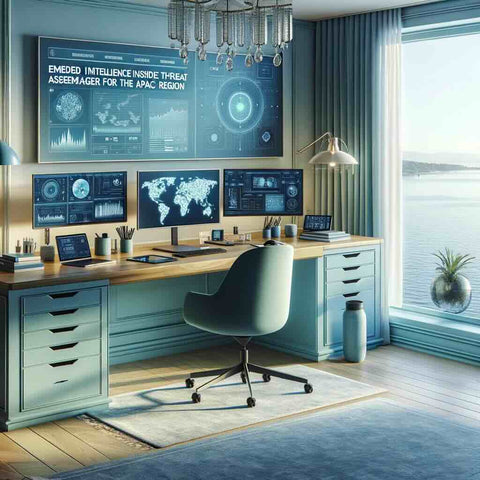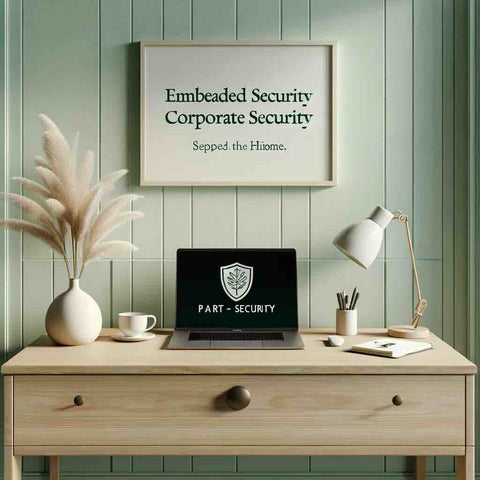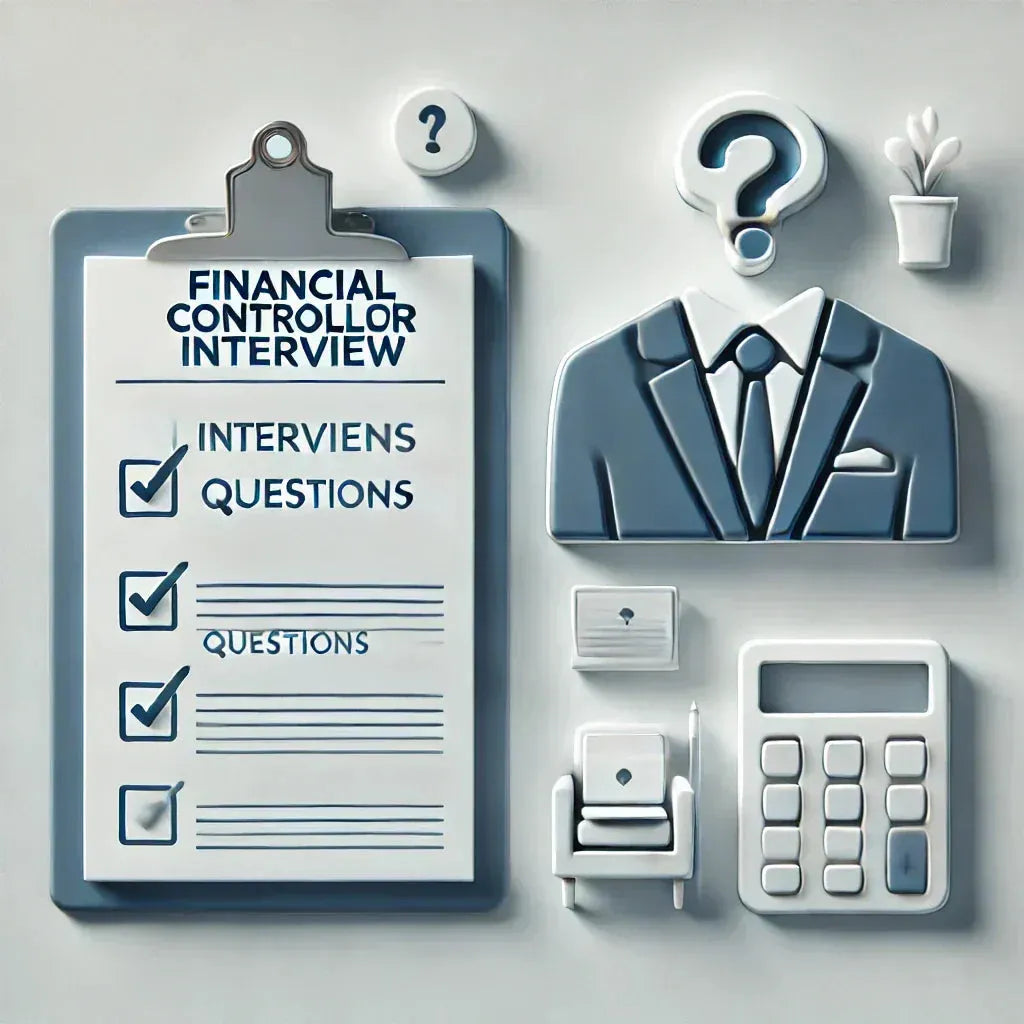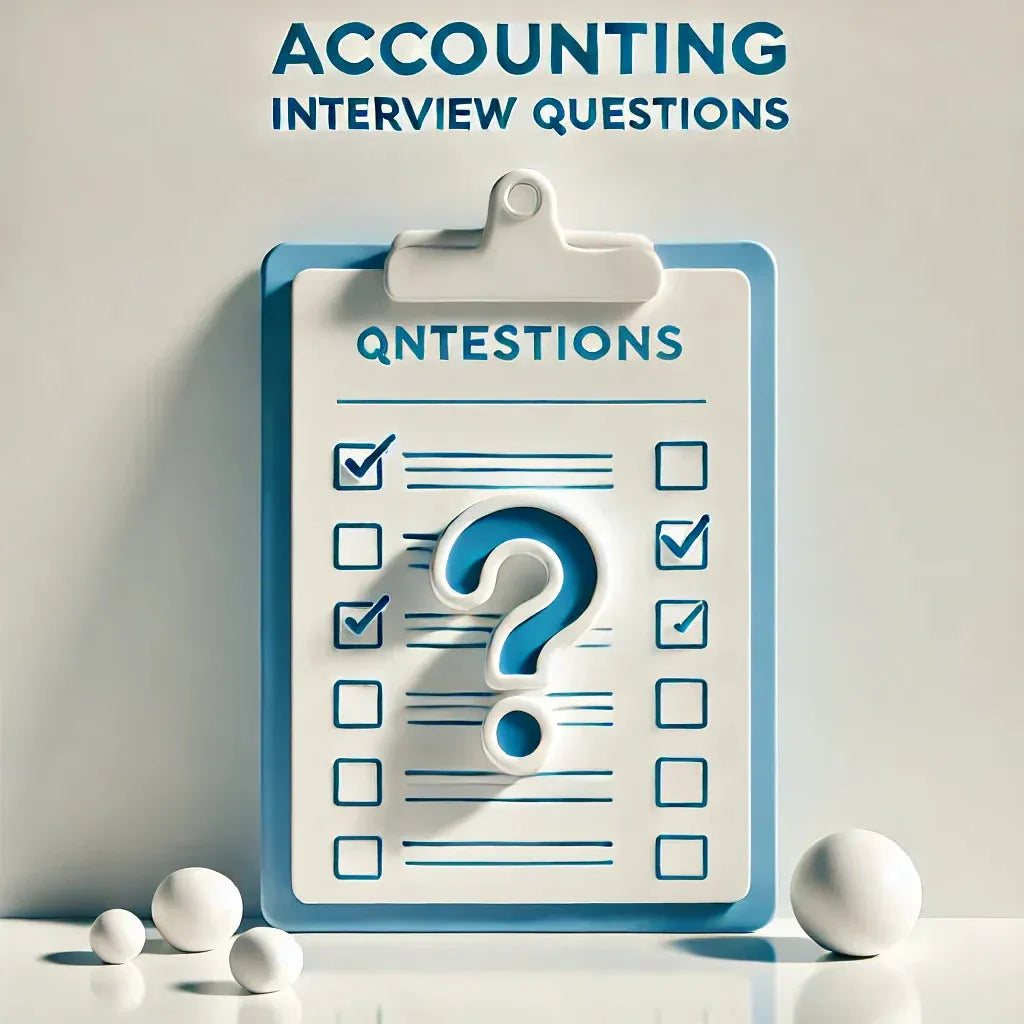Ace Your Concentric Advisors Interview Questions
Ace Your Concentric Advisors Interview Questions with Model Answers
Are you looking for Concentric Advisors interview questions? You're seeking an opportunity with a company known for its strategic security consulting and intelligence services.
To help you stand out, we've compiled some nuanced Concentric Advisors interview questions, model answers, and a foolproof follow-up strategy.
These questions and model answers showcase the candidate's strategic thinking, problem-solving skills, and ability to communicate effectively across various scenarios relevant to security and intelligence roles.
These are questions basis jobs as on Concentric as of July 2024
Concentric advisors interview questions on Embedded Intelligence

Interviewers will likely focus on your experience, problem-solving skills, and ability to work collaboratively across different teams for a role like the Insider Threat Assessment Manager. Let's dive into some potential interview questions:
Experience and Expertise for Concentric Advisors interview questions :
- Can you share an example of a complex threat assessment you managed? What was the outcome?
- Describe a time when you had to investigate an insider threat. How did you approach the investigation, and what was the result?
Model Answer:
I managed a complex threat assessment involving a suspected data leak in my previous role. Analyzing network traffic and employee behaviour, I identified an employee transferring confidential data to an external server. I collaborated with IT, Legal, and HR to ensure a comprehensive approach, leading to a discreet investigation that confirmed the breach. The employee was handled according to company policy, and we implemented more robust data protection measures. This incident taught me the importance of cross-departmental collaboration and proactive threat detection."
Collaboration and Communication:
- How do you ensure effective communication and collaboration with cross-functional teams such as cyber security, legal, and HR?
- Tell us about when you had to communicate a sophisticated security issue to a non-technical audience. How did you ensure your message was understood?
Model Answer:
Ensuring effective communication across different teams involves clear, jargon-free language and understanding each department's priorities. For example, when presenting a security issue to non-technical staff, I use analogies and visual aids to make the concepts accessible. In one instance, I explained the risk of insider threats to HR by comparing it to background checks in the hiring process. This helped them understand the necessity of proactive measures and led to a smoother collaboration in setting up preventive policies.
Problem-Solving and Innovation:
- Describe a situation where you had to develop or improve prevention, response, and recovery methods for insider risks. What challenges did you face, and how did you overcome them?
- How do you stay ahead of emerging insider threats and ensure your knowledge and methods remain up to date?
Model Answer:
I regularly participate in industry forums and workshops to stay ahead of emerging insider threats. In one project, I noticed increased data theft via cloud storage sites. I led the development of a new monitoring tool that flagged unusual data uploads, significantly reducing unauthorized data exfiltration. This solution required researching current trends, developing a proposal, and working with IT to implement the tool. It's crucial to be innovative and adaptable, as threats constantly evolve."
Leadership and Influence:
- How do you influence decision-making and policy development related to insider threat management without having direct authority over those areas?
- Share an experience where you led a team or project in a matrixed or complex business organization. What was your strategy for managing disparate priorities?
Model Answer:
Building strong relationships and demonstrating expertise are essential for influencing without direct authority. Tasked with persuading senior management to adopt a more stringent access control policy, the focus was on highlighting the risks of inaction through case studies and a cost-benefit analysis of potential security breaches. Active listening to their concerns, addressing them with evidence, and proposing a phased implementation plan were key strategies that eventually secured their support.
Ethics and Integrity:
- How do you handle sensitive information and ensure data confidentiality, integrity, and availability during your investigations?
- Can you discuss when you faced an ethical dilemma during an investigation? How did you resolve it?
Model Answer:
Handling sensitive information with the utmost integrity is non-negotiable. In one investigation, I discovered a colleague I knew personally was inadvertently involved in a security breach. Despite the personal connection, I adhered to our strict confidentiality and ethical guidelines, ensuring the investigation was unbiased and professional. The situation was resolved with minimal disruption, reinforcing the importance of integrity in maintaining trust and security within the organization
Concentric advisors interview questions on Embedded Security

For the role of a Corporate Security Specialist at Concentric in New York, your interview preparation will need to focus on your experience in security operations, customer service skills, and ability to handle emergencies. Given the responsibilities and qualifications outlined, here are some potential interview questions tailored to this position:
Experience in Security Operations:
Can you describe your experience with physical security, CCTV, and alarm monitoring systems? How did you handle a situation where you identified a security breach?
Model Answer:
In my previous role, I managed the physical security operations for a large corporate office, overseeing the CCTV and alarm monitoring systems. On one occasion, I identified an unauthorized entry through CCTV surveillance. I immediately activated our security protocol, which included isolating the area and coordinating with law enforcement. The breach was contained without compromising our assets or personnel safety, showcasing my vigilance and ability to act swiftly under pressure.
Incident Management and Emergency Response:
- Share an example of when you had to respond to an emergency. How did you ensure the safety of all involved while maintaining professionalism?
Model Answer:
During an emergency power outage at the facility I was securing, I took charge to ensure the safety and calmness of all individuals present. I implemented our emergency response plan, guiding people using flashlights to designated safe areas and performing roll calls to ensure no one was missing. My clear communication and professionalism during the situation helped maintain order, and I received a commendation for my leadership and effective management of the incident.
Professionalism and Customer Service:
- This role requires a high level of customer service in a corporate setting. Can you give an example of how you've provided excellent customer service in a previous security role?
Model Answer:
In my role at a high-profile event security team, I encountered a guest who was distressed about a lost personal item. Demonstrating empathy and maintaining a professional demeanour, I assisted in retracing their steps and engaged our team to locate the item. The guest's item was promptly found, leading to their immense gratitude. This experience underscores my commitment to providing exceptional customer service by going above and beyond to address individual concerns.
Communication and Reporting:
- How do you approach writing security assessments and reports, especially when detailing executive travel itineraries and potential risks?
Model Answer:
Writing detailed security assessments and reports is critical to my current role. I conduct thorough risk assessments for executive travel itineraries, considering potential threats and logistical challenges. My reports are concise yet comprehensive, offering clear guidance and contingency plans. This meticulous approach ensures that executives are well-informed of potential risks, contributing to their safety and the smooth execution of their travel plans.
Qualifications and Training:
- Discuss your defensive tactics, de-escalation techniques, and first aid/medical response training. How have these skills helped you in your security career?
Model Answer:
My security career is backed by extensive training in defensive tactics, de-escalation techniques, and first aid, including CPR certification. These skills were pivotal during an incident where I successfully de-escalated a potentially violent confrontation between two individuals, preventing any harm. My first aid training also came into play when I administered emergency care to an individual experiencing a severe allergic reaction, stabilizing them until medical personnel arrived.
Ethics and Confidentiality:
- Given the high ethical standards required for this role, can you describe a situation where you had to handle highly confidential information? How did you ensure its security?
Model Answer:
Handling confidential information is a responsibility I take seriously. In a previous role, I was entrusted with sensitive information regarding a corporate merger. I ensured its security by following strict access protocols and encryption, avoiding leaks. My adherence to confidentiality and ethical standards protected the information and reinforced trust with our clients and stakeholders.
Adaptability and Problem-Solving:
- Can you tell us about when you had to adapt to a change in security protocols or procedures quickly? What was the situation, and how did you handle it?
Model Answer:
When our security software underwent an unexpected update, it momentarily disrupted our monitoring capabilities. Recognizing the potential risk, I quickly adapted by enhancing physical patrols and temporarily implementing additional manual checks. I also facilitated a rapid training session for the team on the software's new features. My proactive approach ensured no security lapses occurred during this transition, demonstrating my adaptability and problem-solving skills.
Strategic Interview questions and answers
Concentric advisors interview questions on HR coordinator
Question 1: Behavioral Question
Q: Describe a time when you had to manage multiple tasks under a tight deadline. How did you handle it, and what was the outcome?
A: In my previous role, I was responsible for coordinating a company-wide training session while simultaneously managing the onboarding process for new hires. Both tasks had tight deadlines. To handle this, I created a detailed schedule prioritizing critical tasks and used project management software to track progress. I also communicated effectively with my team to delegate less critical tasks. As a result, the training session was successful, and all new hires were onboarded smoothly and on time. This experience enhanced my ability to work efficiently under pressure and improve my multitasking skills.
Question 2: Technical HR Question
Q: How do you ensure the confidentiality and accuracy of employee records?
A: Ensuring the confidentiality and accuracy of employee records is paramount. I adhere to strict protocols for handling sensitive information, such as securing physical records in locked cabinets and using encrypted digital systems. I regularly audit records to check for any discrepancies and ensure data integrity. For instance, in my previous job, I implemented a double-check system where another HR team member reviewed data entries, reducing errors by 15%. Additionally, I stay updated on compliance regulations to ensure all records meet legal standards.
Question 3: Situational Question
Q: How would you handle a situation where an employee approaches you with a complaint about their supervisor?
A: If an employee approaches me with a complaint about their supervisor, I would first listen carefully and empathetically to understand the full context of their concern. I would ensure the employee feels heard and take detailed notes while maintaining confidentiality. Then, I would explain the company's grievance process and reassure them that their concern will be addressed promptly and fairly. I would escalate the issue to the appropriate level of management or HR, and if needed, facilitate a mediation meeting to resolve the issue. Throughout the process, I would follow up with the employee to ensure they are informed and feel supported.
Question 4: Behavioral Question
Q: Can you give an example of how you improved a process in your previous HR role?
A: In my previous role, I noticed that the onboarding process was inefficient and time-consuming, often causing delays. I proposed and implemented a digital onboarding system that streamlined paperwork and automated many administrative tasks. This included creating online forms for new hires and setting up automated email reminders for required documents. As a result, the onboarding process became 30% faster, and new hires had a more positive experience joining the company. This change also allowed the HR team to focus more on employee engagement and development initiatives.
Question 5: Technical HR Question
Q: How do you stay updated with the latest HR laws and regulations?
A: Staying updated with the latest HR laws and regulations is essential for ensuring compliance and avoiding legal issues. I regularly participate in HR webinars, attend industry conferences, and subscribe to reputable HR publications and newsletters. I am also a member of professional organizations like SHRM, which provides valuable resources and updates on HR trends and legal changes. Additionally, I frequently review updates from government websites and legal advisors to ensure our policies and procedures are always current. This proactive approach helps me keep our HR practices compliant and up to date.
Question 6: Situational Question
Q: How would you handle a situation where a candidate you are very interested in has multiple job offers?
A: If a candidate I am interested in has multiple job offers, I would first communicate with the candidate to understand their key priorities and what they are looking for in a new role. I would highlight the unique benefits and opportunities that Concentric offers, such as our commitment to employee development, competitive benefits package, and positive company culture. I would also ensure timely and transparent communication throughout the process to demonstrate our enthusiasm and commitment. If necessary, I would collaborate with the hiring manager to discuss possible incentives or flexibility to make our offer more attractive. Building a strong relationship with the candidate and understanding their needs can often tip the scales in our favor.
After the Concentric Advisors Interview questions: The Follow-Up
Sending a Thank You Email
Within 24 hours of your interview, send each interviewer a personalized thank you email. Express gratitude for their time and reiterate your interest in the role and the company. Be concise but specific about why you're excited about the opportunity.
Example:
Subject: Thank You for the Opportunity
Dear [Interviewer's Name],
Thank you for taking the time to discuss the [position name] role with me today. I appreciated learning more about Concentric Advisors and am even more enthusiastic about the opportunity to contribute to your team, especially in areas like [mention a specific topic discussed during the interview].
I look forward to working together and contributing to the innovative solutions at Concentric Advisors.
Warm regards,
[Your Name]
Staying in Touch
If you have not heard back within the timeframe provided, sending a follow-up email is appropriate. Politely inquire about the status of your application and restate your interest in the position.
Remember, the interview process is as much about demonstrating your professionalism and enthusiasm post-interview as it is about showcasing your skills during the interview.
Power BI interview questions and answers
Summing up Concentric Advisors interview questions
In wrapping up, the journey to ace an interview, especially with an esteemed organization like Concentric Advisors, demands a blend of preparation, self-awareness, and strategic communication.
The nuanced interview questions and answers shared here are designed to give you a competitive edge, helping you effectively articulate your experiences, skills, and unique value proposition. Remember, the interview is not just about answering questions; it's about engaging in a conversation that showcases your fit for the role and the organization.
Follow up with thoughtfulness and professionalism to leave a lasting impression. Armed with these insights, you're well on your way to making a memorable impact and stepping confidently into your next professional adventure. Good luck!
Other popular reads
Interview Questions? Answers.
Interview questions and model answers
- Accounting Interview questions and answers
- Accounts receivable interview questions
- Accounts payable interview questions
- ESG Interview questions
- Forensic accountant interview questions
- Financial controller interview questions
- GST interview questions
- IFRS interview questions and answers
- IFRS 15 interview questions and answers
- IFRS 17 Interview Questions and answers
- IFRS 9 Interview Questions and Answers
- IFRS 16 Interview Questions and answers
- Managerial round interview questions and answers
- Blockchain interview questions for finance professionals
What should I wear to an interview?
It's important to dress professionally for an interview. This usually means wearing a suit or dress pants and a button-down shirt for men, and a suit or a dress for women. Avoid wearing too much perfume or cologne, and make sure your clothes are clean and well-maintained.
How early should I arrive for the interview?
It's best to arrive at least 15 minutes early for the interview. This allows you time to gather your thoughts and compose yourself before the interview begins. Arriving too early can also be disruptive, so it's best to arrive at the designated time or a few minutes early.
"What should I bring to an interview?"
It's a good idea to bring a few key items to an interview to help you prepare and make a good impression. These might include:
- A copy of your resume and any other relevant documents, such as references or writing samples.
- A portfolio or sample of your work, if applicable.
- A list of questions to ask the interviewer.
- A notebook and pen to take notes.
- Directions to the interview location and contact information for the interviewer, in case you get lost or there is a delay.
Is it okay to bring a friend or family member to the interview?
t's generally not appropriate to bring a friend or family member to an interview, unless they have been specifically invited or are necessary for accommodation purposes.
What should I do if I'm running late for an interview?"
If you are running late for an interview, it's important to let the interviewer know as soon as possible. You can try calling or emailing to let them know that you are running behind and to give an estimated arrival time.
If possible, try to give them a good reason for the delay, such as unexpected traffic or a last-minute change in your schedule. It's also a good idea to apologize for the inconvenience and to thank them for their understanding.
How should I address the interviewer?
- It's generally a good idea to address the interviewer by their professional title and last name, unless they specify otherwise. For example, you could say "Mr./Ms. Smith" or "Dr. Jones."
Is it okay to ask about the company's culture or benefits during the interview?
Yes, it's perfectly acceptable to ask about the company's culture and benefits during the interview. In fact, it's often a good idea to ask about these things to get a better sense of whether the company is a good fit for you. Just make sure to keep the focus on the interview and not get too far off track.
"What should I do if I don't know the answer to a question?"
It's okay to admit that you don't know the answer to a question. You can try to respond by saying something like: "I'm not sure about that specific answer, but I am familiar with the general topic and would be happy to do some research and get back to you with more information."
Alternatively, you can try to answer the question by using your own experiences or knowledge to provide context or a related example.
"Is it okay to ask about salary and benefits in an interview?"
It's generally best to wait until you have received a job offer before discussing salary and benefits.
If the interviewer brings up the topic, you can respond by saying something like: "I'm open to discussing salary and benefits once we have established that we are a good fit for each other. Can you tell me more about the overall compensation package for this position?"
"What should I do if I'm asked a illegal question?"
It's important to remember that employers are not allowed to ask questions that discriminate on the basis of race, religion, national origin, age, disability, sexual orientation, or other protected characteristics. If you are asked an illegal question, you can try to redirect the conversation back to your qualifications and skills for the job.
For example, you might say something like: "I'm not comfortable answering that question, but I am excited to talk more about my skills and experiences that make me a strong fit for this position."
"What should I do if I'm asked a question that I don't understand?"
It's okay to admit that you don't understand a question and to ask for clarification. You can try saying something like: "I'm sorry, I'm not sure I fully understand the question. Could you please clarify or provide some more context?"
How should I end the interview?
At the end of the interview, thank the interviewer for their time and express your interest in the position. You can also ask about the next steps in the hiring process and when you can expect to hear back. Finally, shake the interviewer's hand and make sure to follow up with a thank-you note or email after the interview.
Popular interview questions
- Mutual fund interview questions
- Best buy interview questions
- Aged care interview questions
- Interview outfits for women
- Business analyst interview questions
- Thank you email after interview
- questions to ask at end of interview
- Concentric advisors interview questions
- CA articleship interview questions
- Exit interview questions
- AML KYC interview questions
- Accounts payable interview questions
- Accounts receivable
- GST questions
- ESG questions
- IFRS interview
- Financial controller
- Mern stack
- Tally interview
- Terraform interview
- questions asked at interview for teaching assistant











Leave a comment